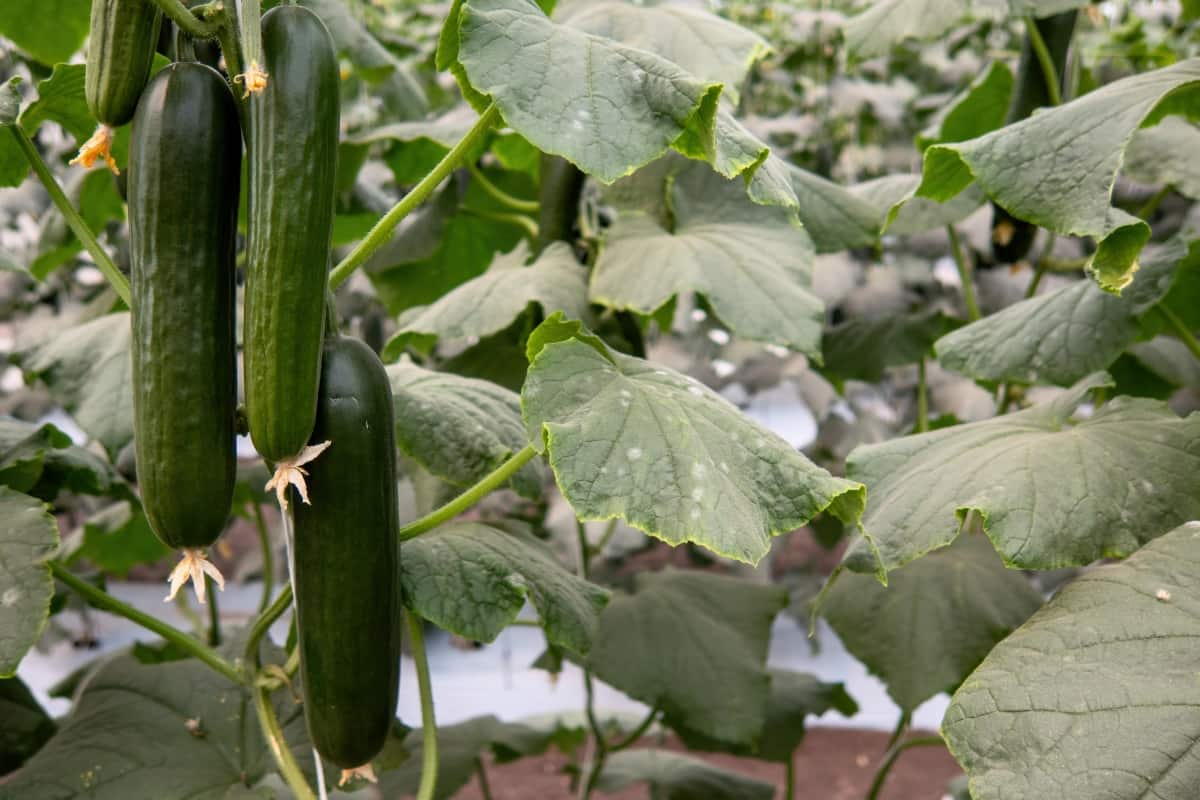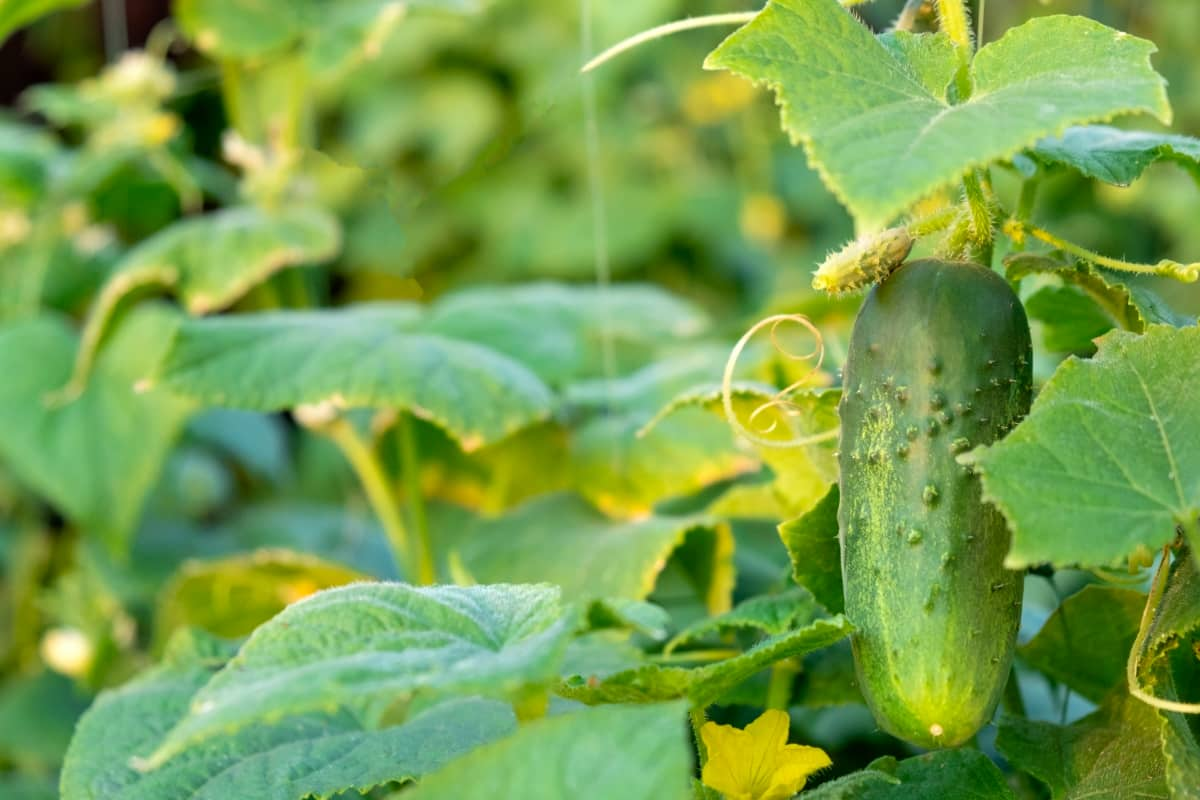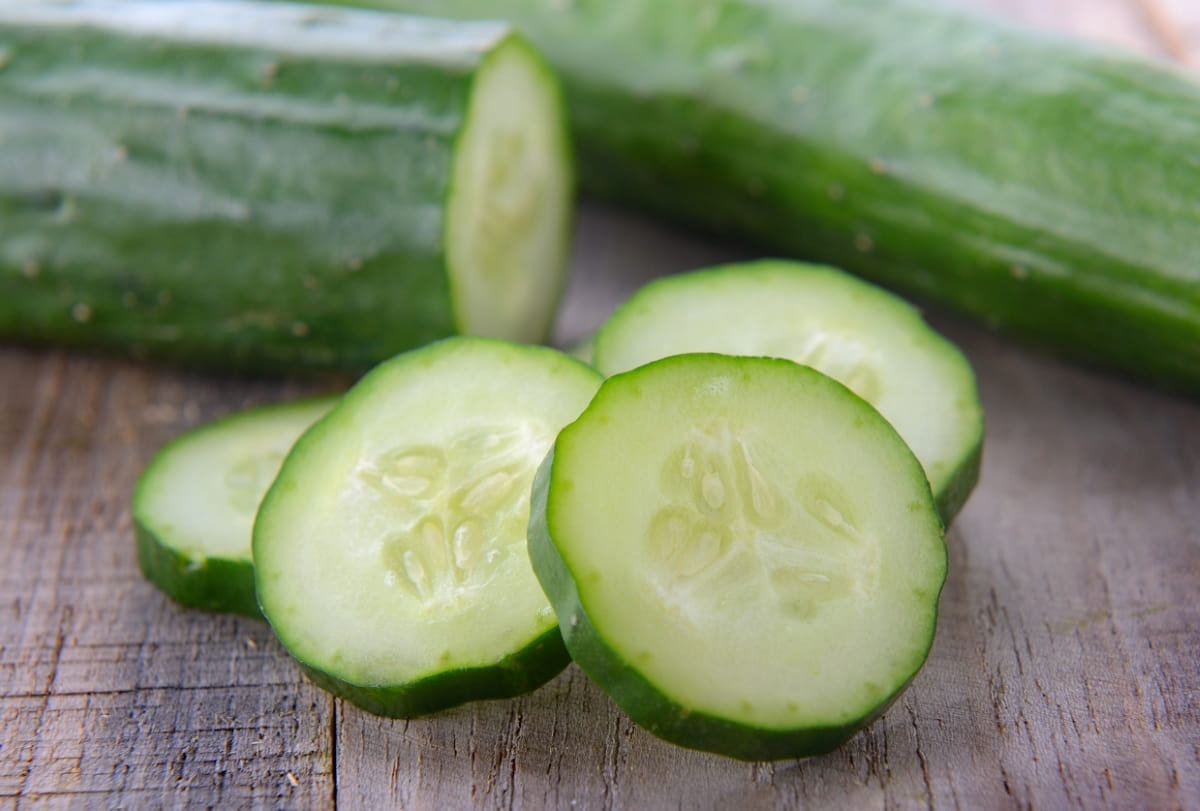Gardening enthusiasts often face the challenge of bitter cucumbers, a common issue that can diminish the quality of their harvest. Understanding how to prevent bitter cucumbers is crucial for a successful garden. This article will delve into various strategies to tackle this problem, like selecting the right cucumber variety, soil pH management, proper watering, and more.

While bitter cucumbers are not poisonous, their taste can be off-putting. Identifying and fixing bitter cucumbers can enhance the benefits of this nutritious vegetable. We’ll also discuss bitter cucumber side effects and highlight bitter-free cucumber varieties, ensuring you enjoy the best from your garden.
Prevent Cucumbers from Turning Bitter
Causes of Bitter Cucumbers in the Garden
Bitterness in cucumbers is often caused by stress factors such as temperature fluctuations, inadequate watering, and poor soil conditions. When cucumbers experience extreme heat or cold, it can trigger the production of compounds that lead to bitterness. Inconsistent watering practices, either too much or too little, can also contribute to this issue. Soil that lacks essential nutrients or has improper pH levels can affect the plant’s ability to absorb water and nutrients efficiently, leading to stressed plants and bitter fruits. Understanding these causes is the first step in learning how to prevent bitter cucumbers.
Selecting the Right Cucumber Variety
Choosing the right variety of cucumber is a vital step in avoiding bitterness. Some cucumber varieties are naturally more prone to developing bitterness, while others are bred to be bitter-free. Researching and selecting varieties known for their sweet and mild flavor can significantly reduce the chances of ending up with bitter cucumbers. Garden centers and seed catalogs often provide information about the flavor profile of different cucumber varieties, making it easier to choose the right one for your garden.
Soil pH Management
Cucumbers prefer a slightly acidic to neutral pH range. Testing your garden’s soil pH and adjusting it accordingly can help prevent bitterness in cucumbers. If the soil is too acidic or too alkaline, it can hinder the plant’s ability to absorb nutrients, leading to stress and bitterness. Adding organic matter to the soil or using pH adjusters can assist in preserving the optimal pH for cucumber cultivation.
Supply Proper Watering (Avoid Overwatering)
Watering is critical for cucumber plants, but it’s important to avoid overwatering. Cucumbers need a consistent supply of moisture to grow properly. Irregular watering can cause stress to the plants, leading to bitter fruits. Implementing a regular watering schedule, especially during dry spells, can ensure that the plants receive enough water without being overwatered. Using methods like drip irrigation can provide a steady supply of water, keeping the soil consistently moist but not waterlogged.
In case you missed it: Using Neem Oil on Cucumber Plants: A Natural Way to Control Cucumber Pests

Provide Adequate Sunlight
Sunlight is another crucial factor for growing cucumbers. These plants require plenty of sunlight to thrive. Lack of adequate sunlight can stress the plants, contributing to bitterness in the fruit. To foster robust cucumber growth and mitigate bitterness, it is imperative to plant your cucumber crops in an area that enjoys ample sunlight throughout most of the day. Pruning any nearby plants that might cast shade on your cucumbers can also help in providing them with the sunlight they need.
Maintain Ideal Temperatures
Extreme temperatures, either too hot or too cold, can stress cucumber plants, leading to bitter fruits. Maintaining an ideal temperature range is essential for preventing bitterness. Providing some shade during the hottest part of the day or using row covers during cooler nights can help regulate the temperature around your cucumber plants. Monitoring the local weather and adjusting your gardening practices accordingly can also aid in maintaining optimal growing conditions.
Provide Hilling and Training
Hilling and training cucumber plants can also help in preventing bitterness. Hilling involves piling soil around the base of the plants, which can help retain moisture and regulate soil temperature. Using trellises or similar supports to train cucumbers can enhance air circulation, thereby lowering the susceptibility to diseases and stress. These practices not only aid in preventing bitterness but also make the plants easier to manage and harvest.
In case you missed it: How to Grow Hydroponic Cucumber: A Step-by-Step Guide

Manage Pests and Diseases
Finally, effectively managing pests and diseases is essential for preventing bitterness in cucumbers. Pests and diseases can weaken plants, making them more susceptible to stress and bitterness. Regularly inspecting your cucumber plants for signs of pests or diseases and taking prompt action can help keep your plants healthy.
By employing organic pest control techniques and maintaining proper garden cleanliness, such as clearing away debris and eliminating diseased plants, you can minimize the occurrence of pests and diseases, thereby safeguarding the sweetness and flavor of your cucumbers.
Timing of Harvest is Important
The timing of harvest plays a pivotal role in ensuring the quality of cucumbers. Picking cucumbers at the right stage of maturity is crucial for avoiding bitterness. Overripe cucumbers are more likely to develop bitter flavors, so regular monitoring and timely harvesting are important. Harvesting cucumbers when they are medium-sized, firm, and have a bright, even color is ideal. This not only guarantees a delightful flavor but also stimulates increased fruit production in the plant, optimizing the overall yield of your garden.
Avoid Stress
Minimizing stress on cucumber plants is essential for preventing bitterness. Various factors, including extreme weather conditions, inadequate or excessive watering, poor soil health, and pest infestations, can cause stress. Implementing strategies to manage these stressors effectively can significantly reduce the likelihood of bitter cucumbers. This involves providing a stable environment with consistent care, monitoring plant health regularly, and addressing any issues promptly.
Use Organic Fertilizers
Using organic fertilizers is another effective strategy for preventing bitterness in cucumbers. Organic fertilizers release nutrients gradually, ensuring a consistent and sustained nourishment source for plants. This helps in maintaining healthy growth and reduces the stress that can lead to bitterness. Besides their nutritional advantages, organic fertilizers enhance soil structure and boost its capacity to retain water and nutrients, thereby promoting the well-being of cucumber crops.
In case you missed it: Cucumber Plant Flowers but No Fruit: Reasons, Tips, Remedies, and How to Fix

Conclusion
Growing cucumbers that are free from bitterness involves a combination of careful variety selection, proper garden management, and timely interventions. By understanding the causes of bitterness and implementing strategies such as managing soil pH, providing adequate water, sunlight, and ideal temperatures, along with hilling, training, and controlling pests and diseases, gardeners can greatly reduce the chances of bitter cucumbers.
Remembering the importance of timely harvest, minimizing plant stress, and using organic fertilizers further ensures a sweet and productive cucumber harvest. With these practices in place, gardeners can enjoy the fruits of their labor, savoring the taste of fresh, non-bitter cucumbers straight from their garden.
- Feed Your Flock for Less: Top 10 Tips to Save on Chicken Feed
- Ultimate Guide to Ossabaw Island Hog: Breeding, Raising, Diet, and Care
- Hatching Answers: The Top 10 Reasons Your Chickens Aren’t Laying Eggs
- Eggs and Economics: Breaking Down the Cost of Raising Backyard Chickens
- Defend Your Greens: Proven Methods to Keep Iguanas Out of Your Garden
- Ultimate Guide to Cinnamon Queen Chicken: A Comprehensive Guide for Beginners
- Ultimate Guide to California Tan Chicken: Breeding, Raising, Diet, Egg-Production and Care
- Ultimate Guide to Marsh Daisy Chicken: Breeding, Raising, Diet, and Care
- 10 Types of Chicken Farming Businesses You Can Start for Profits